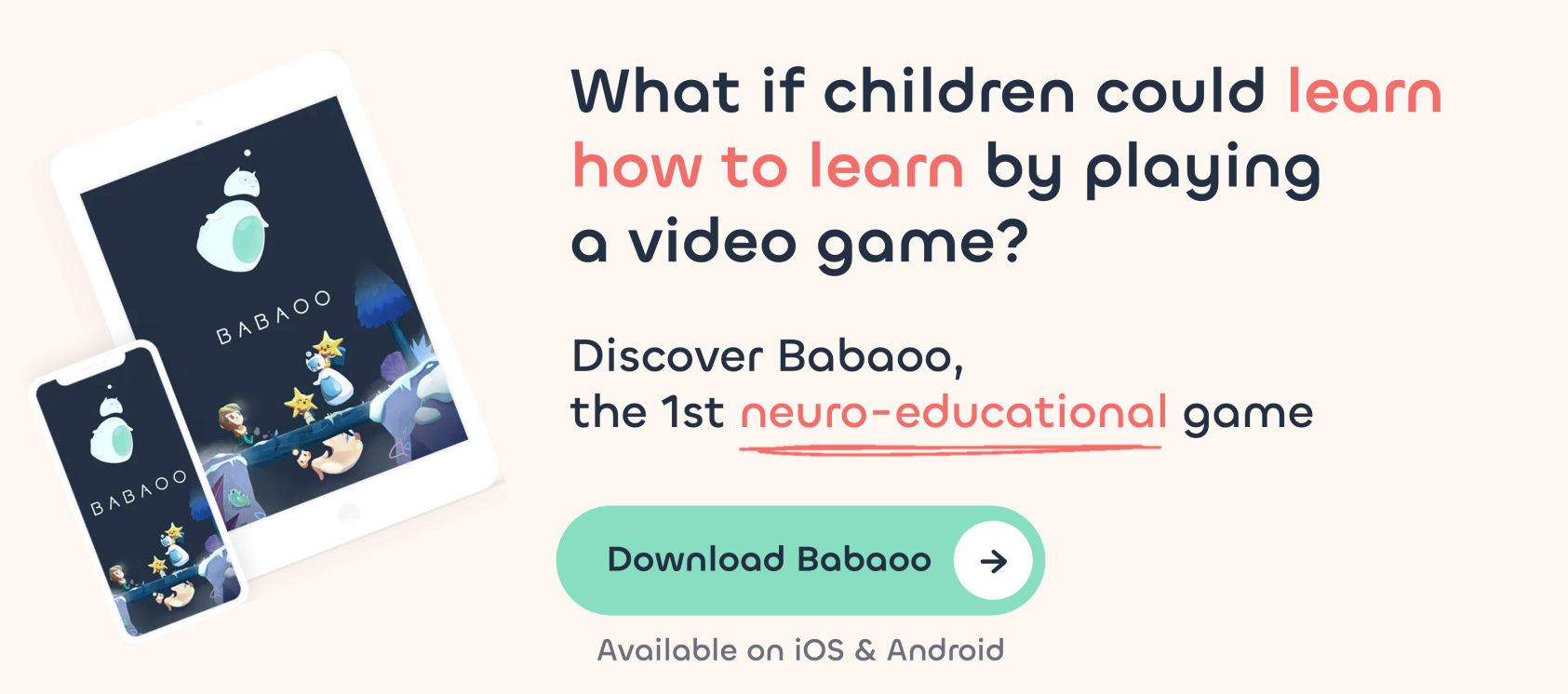
All you need to know about HPI: interview with Nicolas Gauvrit

Interview with Nicolas Gauvrit, HPI specialist
You’re a researcher and a mathematician, you must be really smart…
Super smart, yes! [laughs]
How did you become interested in the subject of HPI?
By chance! I found myself at a conference where they were talking a lot about HPI. How much, when you’re young, you can have nightmares, etc. Like ¾ of the room, I recognized myself in the description and wanted to know more…
As a cognitive scientist, how do you develop your intelligence?
I don’t know if I’m developing it, my intelligence… [laughs]
But what is intelligence?
Good question! My definition is that it’s what we also call the “g” factor. A sort of general ability that encompasses lots of things: memory, speed, reasoning capacity, vocabulary, etc.
So, should we speak of “intelligence” in the singular, or “intelligences” in the plural?
Indeed, the definition of “intelligence” is the subject of much debate. While the concept of the “g” factor is widely recognized, other approaches are also being considered.
The difficulty in arriving at a universal definition of “intelligence” lies in its inherently fuzzy and complex nature. It’s not simply what we, as researchers or theorists, would like to define. When people are asked about their conception of intelligence, answers vary widely, testifying to the complexity of the concept. So, it seems, there is no single answer to this question…
Are gifted people ordinary people?
They are ordinary in the sense that the difference between HPIs and others is only a quantitative one. They are faster, they have more memory, better reasoning. But they don’t function any differently. To draw a parallel, it’s like when we talk about athletes: they’re like the others, but stronger, more muscular, more enduring… It’s the same when it comes to HPIs and “ordinary people”!
Do you think you’re HPI?
I don’t know and I don’t want to find out! I don’t want to take the tests… It’s too dangerous, you never know! [laughs]
If I find out I’m HPI, what’s the first piece of advice you’d give me?
Above all, don’t get carried away! [smile]
Would you quickly explain what goes on in the brain of an HPI?
It’s a normal brain, but boosted. There’s more memory, more connections, more ideas, it goes faster, there’s more space… But it’s a brain like any other! It’s like cars: there are small cars and big cars, but they all work the same way.
High Intellectual Potential in a few words, what is it?
I could make two definitions of it:
- In the collective unconscious, on the one hand, there’s a definition that’s a little more abstract, but captures the very essence of this concept: “To be HPI is to have that ‘something extra’ necessary to, one day, become a genius and revolutionize culture or create a new scientific theory.”
- On the other hand, there’s a more practical definition: “You’re High Potential, if you have an I.Q. (Intelligence Quotient) above 130.”
These two definitions don’t overlap perfectly, but there’s a common thread, a kind of link between them.
The HPI, in 3 words… or rather 3 rings?
By “Intelligence”, we mean this ability to accomplish various tasks quickly, to have a good memory, and so on. But some say that’s not enough, especially if you think that the true definition of intelligence involves revolutionizing human nature. For that, you need “Creativity”, the ability to be original, to stand out from the crowd. Because if all you have is intelligence, you may be effective, but not necessarily revolutionary.
But that’s not all. Intelligence and creativity are not enough. You also have to be able to get down to work. At the end of the day, to achieve something great, you need to be fully committed to the task, to have that motivation.
These are the three elements: Intelligence, Creativity and Commitment, are a bit like the three rings needed to, who knows, one day revolutionize human nature.
HPIs do everything better than everyone else: True or False?
Not everything. They’re not necessarily better at emotional intelligence, or at motor skills, i.e. sports. In fact, it’s more in the cognitive sphere that they’re better than everyone else.
HPI, luck or curse?
Luck!
I think I’m particularly intelligent, how do I know if I’m HPI?
If it really matters, you can simply take an I.Q. test to find out if it’s over 130.
But by the way, what is IQ?
The Intelligence Quotient is a measurement, a number that revolves around 100… 130 is very high, 70 is very low. It measures a form of intelligence that corresponds to the “g” factor. We’re talking about mental power, fairly general cognitive abilities.
Have you ever taken a test?
Yes, but I never got the result!
Does a high IQ necessarily mean acting intelligently?
No, it depends what “acting intelligently” means. But having a high IQ means we’re more efficient, so we have the potential to learn, but we can use it to do evil or defend false ideas we might have in our heads. Sometimes a high IQ is rather unfavorable… For critical thinking, for example.
Is being HPI the new trend of the century?
At least, it’s been the trend of the last few decades, yes.
Are there more HPIs than before?
No, 2.3% of the population still is. In any case, if we follow the definition “I.Q. greater than 130”, this percentage doesn’t change.
Experiencing the world as an HPI is a bit like…
It’s like living a little faster with a little more light!
Do you have any advice or ideas for activities to help HPI children make the most of their potential?
Rather than trying to develop one’s potential, first develop yourself. If you like pottery, make pottery, rather than becoming an engineer or a doctor, even if you have the ability. I’m not sure there’s much point in developing your potential, unless you want to. Then you have the motivation to go with it.
HPI, philo-cognitive, zebra, gifted… is it all the same?
The quick answer is “yes”. Even if these terms have very different connotations. “Surdoué” is used less now, because it sounds a bit like “too gifted”, and it can imply that there are associated problems, which isn’t necessarily the case. “Zebra” may have originally just meant HPI, but now it’s more akin to hypersensitive and unhappy.
As for “philo-cognitive”, it’s a mixture of several things. From the word’s formation alone, it’s someone who “loves cognition”, so it doesn’t really fit with the classic definition of an HPI.
But long story short, yes, all these terms more or less refer to the same idea.
If I’m HPI, impossible to make friends? Neuromythe or reality?
What nonsense! You can make friends among HPIs, but also among others. So it’s not true, in general, HPIs are well surrounded.
At Babaoo, we think that knowing how to adapt is essential in the 21st century. What about you?
I think it’s always been essential to adapt. [smile]
Video games and intelligence development: match or no match?
More like a match. There are arguments for and against, but the majority are pretty positive. So it’s a match!
Babaoo is a neuroeducational game that develops Executive Functions. So, if I play it, I’m bound to get smarter?
Not sure… Yes, some of the intelligence linked to the “g” factor can be developed, but there are other aspects of intelligence that are quite resistant to change. Take memory, for example. It’s really hard to develop. You can learn techniques to retain more, but it’s a bit like cheating! [smile]
Memory is very hard to develop…
Babaoo, invite the kids to explore their Brain. And you, are you coming on board?
Yes, Metacognition is important. Here, we’re right in the middle of it, so the game is interesting.
Would you give Babaoo to your kids?
My kids are 19, so they’re too old, but if they were old enough, yes, I’d take the trial version and see! [smile]
A recommended read for the curious?
I’ve got two.
- If you’re a professional or just very motivated, there’s Psychology of High Potential, a super comprehensive collective book.
- Now for parents or teenagers who want to understand how they function, there’s In the Heads of HPIs – What Science Tells Us, a fairly serious, yet light-hearted explanation illustrated in comic book form.
A word to end this interview?
Let’s just say that the main message, when you’re HPI, is that you shouldn’t get carried away. It’s not such big news… We’re simply part of the population, just like those who are over 2 metres tall. Being HPI is an opportunity, a positive thing, but it’s not a revolution in itself. [smile]
➡️ Also to be read: All about Metacognition: the interview with Alexandra Volckaert
You may also be interested in these articles



